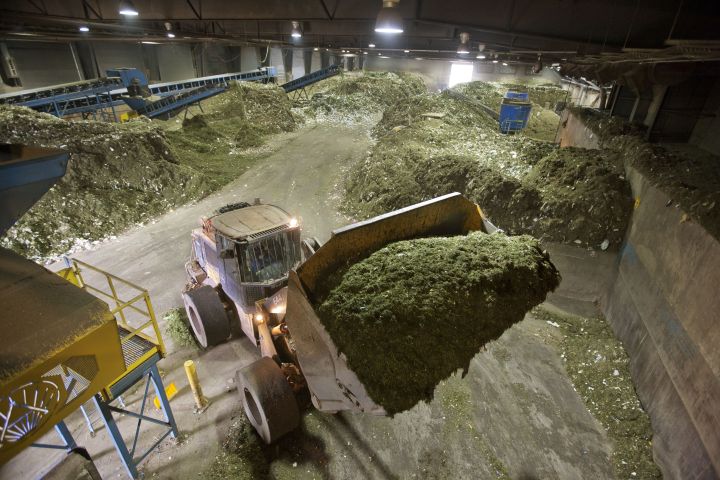Edmonton city council’s utilities committee approved the $12 million demolition of the decaying composter building, but it’s what’s next that is causing concern for one member of the committee.

Councillor Aaron Paquette doesn’t like the concept of having the next composter being a public-private partnership, or a P3 agreement.
“I get pretty leery when I hear about P3s, considering the record Edmonton has experienced,” he told the meeting Friday.
“One of the drawbacks we’ve seen with P3s is sometimes when the private entity says, ‘You know, I’m not really into this,’ they can pull out, leaving municipalities left holding the financial bag.”
“We inherited that last one,” city manager Linda Cochrane said of the composter building agreement. “And the due diligence around that was different than it is now,”
The city bought the original composter for $97 million in 2001 from TransAlta. Projections at the time predicted ownership would save the city $100 million over 25 years.
WATCH BELOW: Global News coverage of the Edmonton composter building
The Aeration Hall Building was closed Oct. 26 last year, and in the spring it was determined it couldn’t be saved. Cochrane told the meeting city staff are doing research, studying other compost operations in other cities to safe guard any arrangement the city will enter into with a business partner.
“They’re putting in every possible practice, legal and contractual, to avoid any problems but there’s no guarantee in the construction industry,” she said.
The next step will be in the spring when city staff present a business plan to city council, according to acting branch manager for infrastructure planning and design, Pascale Ladouceur.
“That’s the analysis we really need to do in the next few months with our financial adviser to look at the what the profit share, risk share and what kind of guarantee does the city give to the partner.”
“This is completely different,” added the department’s branch manager Jason Meliefste.
“This is apples and oranges. It’s really a different technology, a different industry. Although it’s looking to process a lot of the same feedstock, the approach is quite different and unique.”
After city council gives final approval in the spring, the plan is to have the demolition completed late in the summer of 2020.











Comments